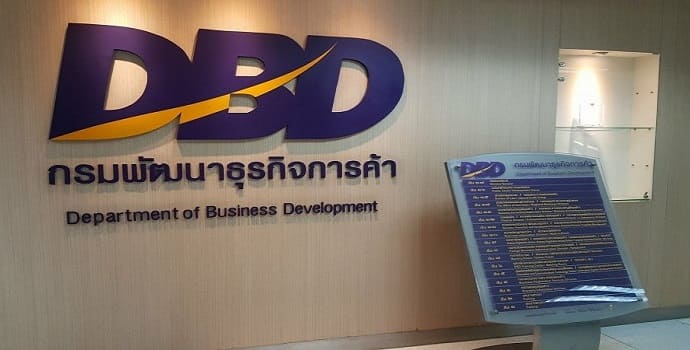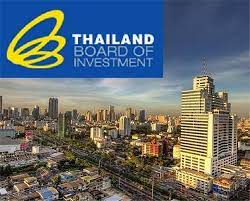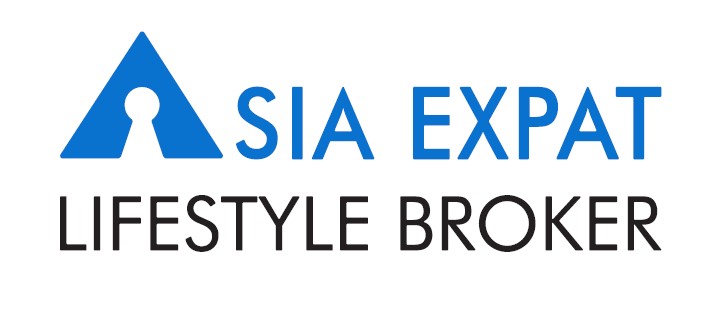Business Registration

Due to its advantageous location, Thailand has excellent business opportunities for
foreigners who wish to establish a Thai company and for foreign investors. Thailand is
the ideal location for international investors to conduct business because of its strong
exports, consistent economic growth, and plenty of natural resources. The Foreign
Business Act (FBA) regulates foreign company formation, Thai company registration, and
foreigners’ business activities in Thailand.
According to the Department of Business Development, there were 2,579 tourism-
related enterprises registered in the first four months of the year, double from the same
period last year. Their aggregate registered capital increased by 135% to 6.66 billion
THB. The majority of the newly registered businesses were in the hospitality industry,
including hotels, resorts, and serviced apartments, as well as travel agents, tour
operators, and restaurants and food businesses. The total number of new firm
registrations increased by almost 16%, and the registered capital increased by 46.8% to
360 billion Thai Baht.

Foreigners have access to a wide range of company formations, including the most
popular Thai Limited Company. The time it takes to register a business in Thailand can
range from 3 to 5 business days for a straightforward Thai Limited Liability Company to
up to 90 days for a more complicated BOI Company, depending on the business
structure chosen. (For a complete list of options, refer to the menu on the left.)
For people who are not familiar with Thai law and legal procedures, getting a foreign
business license, registering a firm, comprehending the civil and commercial code, and
starting a corporation in Thailand can be tough and hard. Fortunately, establishing a
business in Thailand may be done easily and seamlessly thanks to our broad practice
and vast experience resolving extremely complicated corporate concerns for our
overseas customers.
Thai Limited Companies are among the most popular foreign-owned company formats in
Thailand. This kind of corporate structure is straightforward, and the business
organization can carry out a variety of tasks. Each shareholder’s liability is capped at the
outstanding balance on the shares they own in this sort of corporation, which is founded
with its registered capital divided into equal shares.
The Benefits of Thai Limited Companies
Reliability
Investors (or company owners) and other stakeholders must give the government a
clear picture and understanding of the firm when forming a Thai Limited Company. When
a limited company is registered, other parties can check the status of the company with
relation to a variety of issues, including its corporate profile, financial situation,
shareholders list, directors, and more. As a result, parties like all a company’s partners,
investors, banks, or private money lenders consider the company to be trustworthy.
Security
A company is a distinct legal entity that has existed for a while. Usually, a corporation
continues to operate until its owners are unable to do so, at which point they dissolve it.
It is often advised to invest in a reliable, long-lasting company because a Thai Limited
Company cannot be readily dissolved. The Directors, who are appointed by the
shareholders, often handle all the company’s day-to-day management in its branch
offices.
How to establish a Thai Limited Company.
STEP 1: RESERVATION OF COMPANY NAME
Any firm name reservation should follow the name reservation criteria published by the
Department of Business Development (DBD) in the Ministry of Commerce. We typically
ask our clients for at least two or three company names that we can reserve if the name
is already taken or cannot be used.
Step 2:
Identification of the promoters, shareholders, and directors.
A minimum of three (3) promoters, shareholders, and one (1) director are required in
order to register and establish a Thai Limited Company. The Bank Statement Certificate
of the Thai shareholders issued by the Bank in Thailand must demonstrate that the
amount in their bank is equal to or greater than the cost of shares each Thai shareholder
holds if the shareholders are both Thai and Foreigners, or if the shareholders are only
Thai nationals but the directors are Foreigners. The promoters, shareholders, and
directors of the firm are typically asked for information such as their passport or Thai ID
card, age, address, occupation, and contact information.
STEP 3: SUBMISSION OF MEMORANDUM OF ASSOCIATION
A Memorandum of Association (MOA) that includes the name of the company that has
been successfully reserved, the province where the company will be located, its business
objectives, the capital to be registered, and the names of the promoters must be
submitted to the Department of Business Development (DBD) in the Ministry of
Commerce. Although there aren’t any specified minimum capital requirements, the
capital should nonetheless be sufficient and reasonable for the anticipated business
operations. Furthermore, to obtain a Non-Immigrant “B” Visa and a Work Permit for a
foreigner to work in Thailand, you must have a minimum capital of Two Million Thai Baht
(2,000,000THB) for each foreign employee.
STEP 4: CALL A LEGALLY REQUIRED MEETING
Once the company’s share structure has been established, the articles of association and
the memorandum of association have been authorized, the board of directors has been
chosen, and an auditor has been hired, a statutory meeting is called to make all the
appointments.
STEP 5: BUINESS REGISTRATION
Within three months of the date of the Statutory Meeting, the business Directors must
submit the application to form the business, along with company registration fees.
STEP 7: OPENING A BANK ACCOUNT FOR YOUR COMPANY
After being formally registered, businesses in Thailand can open a corporate bank
account and use internet banking. The information required to open a business bank
account includes the name of the bank and branch, the type of accounts the business
needs, and the names of the signers. The statutory meeting must be held at least seven
days before to the registration itself, therefore the registration procedure typically takes
at least nine days. According to the requirements for the procedure, both the company
and the memorandum must be registered with the registrar at the Department of
Business Development, Ministry of Commerce.

FINAL STEP: REGISTRATION FOR CORPORATE INCOME TAX
For taxation purposes, all businesses in Thailand are required to register. A Tax I.D. is
required for businesses that must pay Corporate Income Tax (CIT). within 60 days of
establishment or the beginning of business operations, obtain a company identification
card and registration number from Thailand Revenue Department. Value Added Tax
(VAT)-responsible business owners are also required to register for a VAT I.D. within 30
days of the sale milestone of 600,000 THB.
REQUIRED ADDITIONAL DETAILS: Number of investors and promoters.
Promoters must complete the registration procedure to start a private limited business.
There must be a minimum of three promoters. The proposed firm shall have at least
three shareholders at the time of its incorporation. You really must have three promoters
for this reason. They at least become potential shareholders. As a result, third parties
are prevented from submitting a move to the court asking for the dissolution of your
firm. It should be emphasized that there are no limitations on the maximum number of
shareholders and promoters. This essentially allows you to invite any number of
shareholders to become a part of your business.
Registration Effects
Following the completion of the company registration procedure, the newly formed
company is recognized by the law as a distinct legal entity that is independent of its
stockholders. A “separate legal entity” or “juristic person” are terms used to describe it.
A freshly formed private business has different rights, obligations, and liabilities” from its
stockholders. Only the company itself is bound by any agreements or obligations made
between the company and third parties. The stockholders are therefore not directly
liable to third parties. For instance, stockholders of a corporation that receives
permission to engage in a particular business activity cannot personally own such
permission.
Another illustration is the prohibition of suing a company’s stockholders to recover debt.
Additionally, all information contained in the company establishment or documents
presented to the registrar is considered to have already received third-party
acknowledgement. As a result, the third parties cannot claim that they lacked knowledge
and were unable to safeguard their interests.
Articles of Association
This crucial document, which is used to register a company, includes the company’s
name, address, business goals, capital, number of shares, share value, and promoters’
names (there must be at least three promoters). Memorandums of Association are
registered using a specific form that is available at the registrar.
Association Bylaws
This document details the agreements or policies governing the relationships between
the company’s shareholders, including the rights of shareholders and the company’s
operational policies while conducting business, as well as the agreements relating to the
following corporate matters:
- Shareholders and shares
The directors - Meetings of shareholders
Financial statements - Reserves and dividends
- Administrator
Requirements for Reporting
The Thai Company Limited is required to produce its financial statements once each
month, and the statements must undergo annual auditing by at least one auditor. The
financial statement must be approved by an ordinary shareholder’s meeting within four
months of the company’s fiscal year-end and submitted to the Department of Business
Development (DBD) within one month of the date of approval of the financial
statements.
Within 14 days of the date of the last shareholders meeting, the director must compile a
list of all shareholders who were still holding shares at the time of the annual
shareholder’s meeting as well as a list of those who were no longer shareholders. The
director then submits the lists to the DBD.
Within six months of the Company’s registration date, an annual shareholders’ meeting
shall be convened, and thereafter at least once every twelve months. Share certificates
must be created for the Company’s shareholders. A request for the relocation of the
Company’s headquarters must be submitted to the registrar (if applicable), and a
shareholder’s registration book must be created.
Questions and Answers
In Thailand, are foreigners permitted to own (have shares in) a company?
They can, yes! The Thai government not only supports foreign investors who want to
open businesses and register corporations in Thailand, but it also offers a wide range of
government incentives, including tax breaks, easier access to visas and work permits,
adequate infrastructure, and a skilled workforce. Even better, the Board of Investment
law (BOI) passed by the Thai government actively promotes international investment in
Thailand.
Expat Wise will help our overseas clients select the best business structure and will
simplify the registration and creation of the firm.
What is the most well-liked foreigner-owned business in Thailand?
The creation of a Thai Limited Company is the most advantageous and preferred option
for starting a new foreign-owned firm in Thailand, primarily because it is designed to
protect investment, can be established in a few days, and strongly supports foreign work
permits.
A BOI Company is the second most common business setup for foreigners in Thailand.
The Thai government actively promotes it and offers significant benefits, including tax
cuts, 100% foreign ownership, land ownership, and many other things.
Thailand’S Banking Institutions
Asia Expat Lifestyle Broker Co Ltd (“Expat Wise”) can assist foreign clients, both
individuals and businesses, with opening saving, current, multi-currency, and corporate
accounts.

Leading Thai financial institutions like Bangkok Bank, Kasikorn Bank, Siam Commercial
Bank, Krung Thai Bank, UOB, or CIMB Thai offer bank accounts in Thailand.
Expat Wise will give clients advice on their best options for bank accounts, inside
Thailand’s banking sector, and in relation to their demands. International Accounts We
can also suggest to our foreign customers to open international bank accounts in major
financial centers like Singapore, Zurich, Hong Kong, or other offshore jurisdictions.
To make sure that our clients receive the finest advice possible, Juslaws & Consult is
here. We want to safeguard your interests, so you can rely on us for everything from
opening the appropriate bank accounts to handling challenging legal issues.
Thailand’s Common Partnerships
Ordinary partnerships in Thailand are agreements between two or more parties to pool
their resources to conduct business jointly with the intention of splitting the resulting net
profits. Ordinary partnerships are regarded as a type of contract and are not required to
be registered because all partners are jointly and severally accountable for the
obligations of such a partnership. Without any official registration, it could be
incorporated by the partners just agreeing to do so. But if the parties so want, regular
partnerships can be filed. The partnership becomes a legal entity under Thai law after it
has been registered.
Characteristics
- Widely Used and Simple to Set Up
- You simply need a minimum of two individuals.
- Can begin without the need for any formal legal procedure or supporting
documentation. - Joint and consolidated liability of partners
- Is register ready.
Licensed Common Partnerships
Even while the legislation does not expressly require the registration of an Ordinary
Partnership, it is nonetheless possible. Like the procedures outlined for limited
partnerships and limited businesses, registration is required. For registered partnerships,
the provisions of Sections 1014 through 1024 of the Civil and Commercial Code apply.
According to Section 1014, the Minister of Commerce is currently in charge of registering
partnerships and corporations and issuing the regulations that control the formation of
these organizations. In all other provinces, there are local registration offices; in
Bangkok, registration can be done at the Office of Central Company and Partnership
Registration.
The following registration procedures are required for partnerships and corporations in
accordance with the Civil and Commercial Code:
- The District Registration Office (where the partnership’s principal office is
located) must receive an application for registration. - The applicant is required to pay any applicable government fees.
- The application must comply with all applicable laws and contain all
necessary information and supporting documentation.
Summary
Here at Expat Wise we have the knowledge and experience to enable and help you
establish a business in Thailand. Additionally, we can provide you with the greatest
business solutions for Thailand company registration, including all its intricacies, and
make sure you adhere to all applicable reporting standards resulting in an easy and
quick setup for your business.


